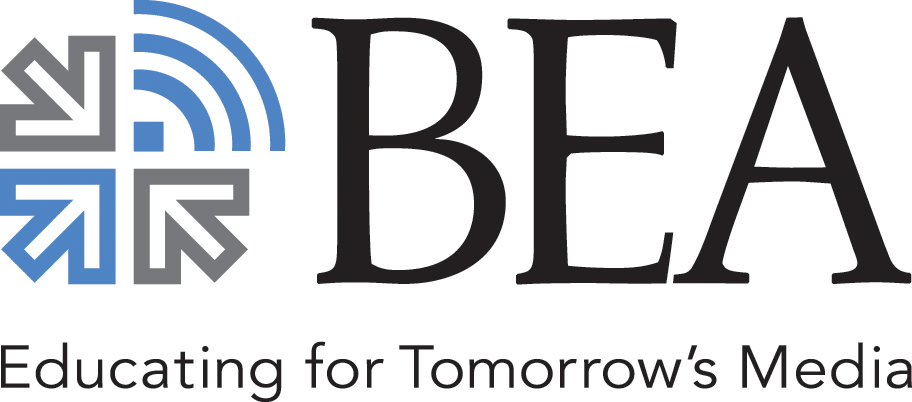Harwood Dissertation Award
Past Recipients
2023 – Bryan Jenkins, Howard University; Doing Black Podcast Studies: Exploring the Black Oral Tradition and Critical Media Literacy in Alternative Media
2022 – Danielle Deavours, University of Montevallo; Not Just What You Say, But How You Say It: Neutrality of Nonverbal Behavior of Journalists During Crisis Coverage
2021 – Yonatan Tewelde, Ohio University; Chatroom Nation: An Eritrean Case Study of a Diaspora PalTalk Public
2020 – Cristi Eschler-Freudenrich, Oral Roberts University; What Was Left on the Cutting Room Floor: Rhetorical Themes of Race in Oral Roberts’ 1956 Crusade Sermons
2019 – Flora Khoo, Regent University; Innocence Killed: Recruitment, Radicalization and Desensitization of the Children of the Islamic State of Iraq and Syria
2018 – Julia Largent, McPherson College; Documentary Dialogues: Establishing a Conceptual Framework for Analyzing Documentary Fandom-Filmmaker Social Media Interaction
2017 – Ginger Blackstone, Harding University; “The Worst of Times”: The Prevalence and Power of Fear in Television News
2016 – Melinda Michele Krakow, University of Utah; Telling Stories for Cervical Cancer Prevention: The Impact of Narrative Features and Processes on Young Women’s HPV Vaccination Intentions
2015 – David Crider, Temple University; Constructing and Performing an On-Air Radio Identity in a Changing Media Landscape
2014 – Lauren Bratslavsky, University of Oregon; From ephemeral to legitimate: An inquiry into television’s material traces in archival spaces, 1950s-1970s
2013 – Shane Tilton, Ohio University; First year students in a foreign fabric: A triangulation study on Facebook as a method of coping/adjustment
2012 – Beth C. Fratkin, University of Utah; The Impact of Federal Communications Commission Practices on Communication Policy Making 2001-2004: An Investigation of the Policy Shift From Public Service Idealism to Market Forces Pragmatism
2011 – Joy Chavez Mapaye, University of Alaska, Anchorage; Viral Viewers: Examining Parasocial Interaction on Local TV News Web Sites
2010 – Pamela Hill Nettleton, Marquette University; Rescuing Men: The New Television Masculinity in ‘Rescue Me,’ ‘Nip/Tuck,’ ‘The Shield,’ ‘Boston Legal’ and ‘Dexter’
2009 – Shawn VanCour, University of Wisconsin; The Sounds of ‘Radio’: A Cultural History of Radio’s Aesthetic Definition as a Broadcast Medium for Aural Communications in 1920s America
2008 – Ronald J. “Noah” Arceneaux, University of Georgia; Department Stores and the Origins of American Broadcasting, 1910–1931
2007 – Mary McIlrath, University of California, Santa Barbara; Children’s cognitive processing of internet advertising
2006 – Kevin D. Williams, University of Georgia; How Violence and Frustration in Video Games Affect Aggression
2004 – Tanja Estella Bosch, Ohio University; Radio, community and identity in South Africa: A rhizomatic study of Bush Radio in Cape Town
2003 – John Armstrong, University of Utah; Localism, Community, and Commercial Television, 1948-1960: A Value Analysis
2002 – Jacob J. Podber, Ohio University; Radio’s Development in Rural America
2001 – Paul Haridakis, Kent State University; The Role of Motivation in Policy Considerations Addressing Television Violence
2000 – Vic Costello, University of Tennessee; Interactivity and the ‘Cyber-Fan’: An Exploration of Audience Involvement Within the Electronic Fan Culture of the Internet
1999 – Matt Jackson, Indiana University; Controlling Technology: Internet Service Providers and Copyright Liability
1997 – Patricia F. Phalen, Northwestern University; Information and Markets and the Market for Information: An Analysis of the Market for Television Audiences
1996 – Steven D. Classen, University of Wisconsin; Broadcast Law and Segregation: A Social History of the WLBT-TV Case
1994 -Michael Edward Lenert, The University of Texas; The paradox of public: The public and the public interest in communication technology regulation in the United States, 1934 – 1988
